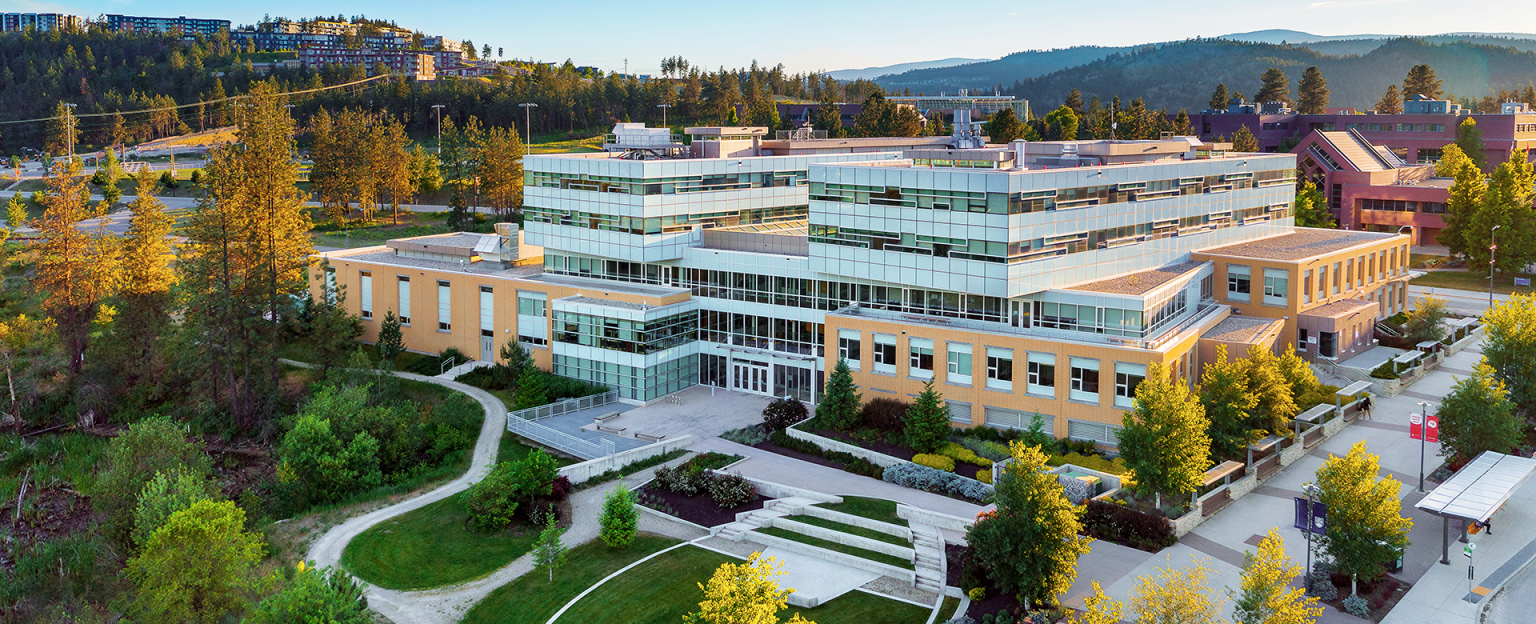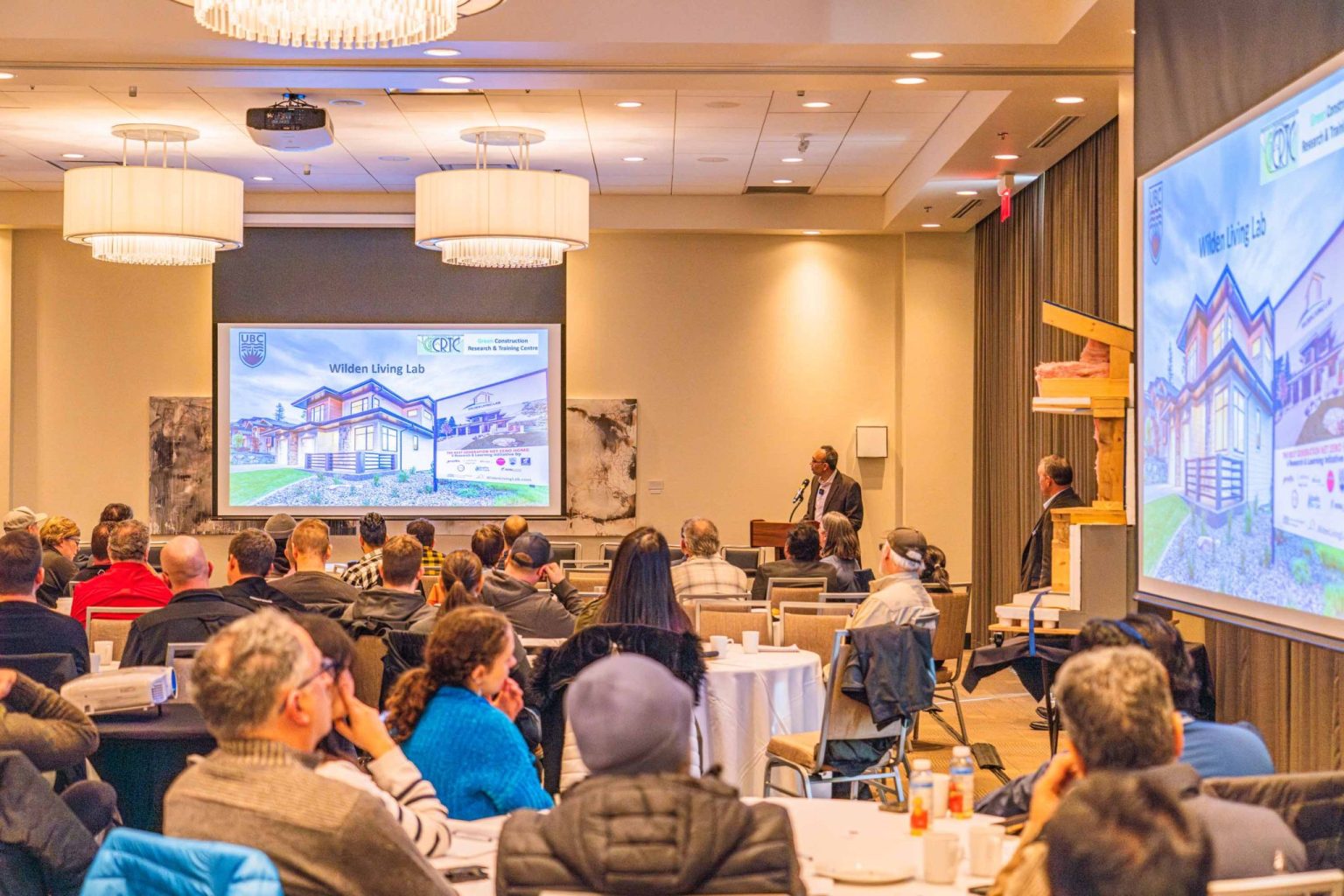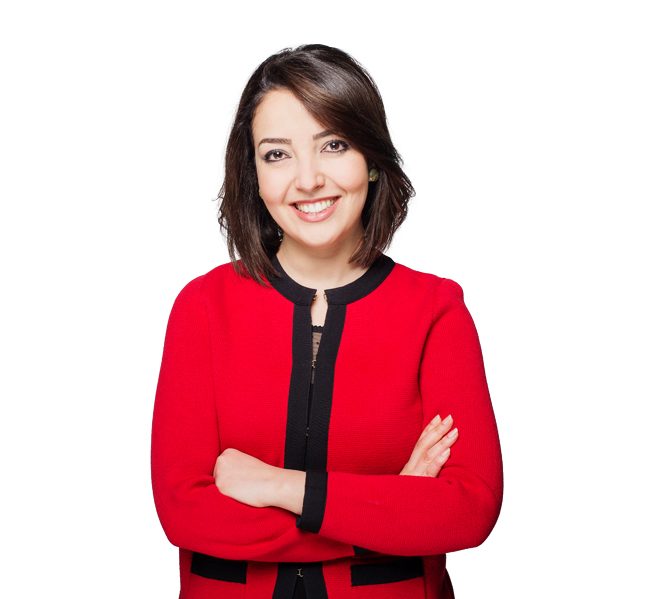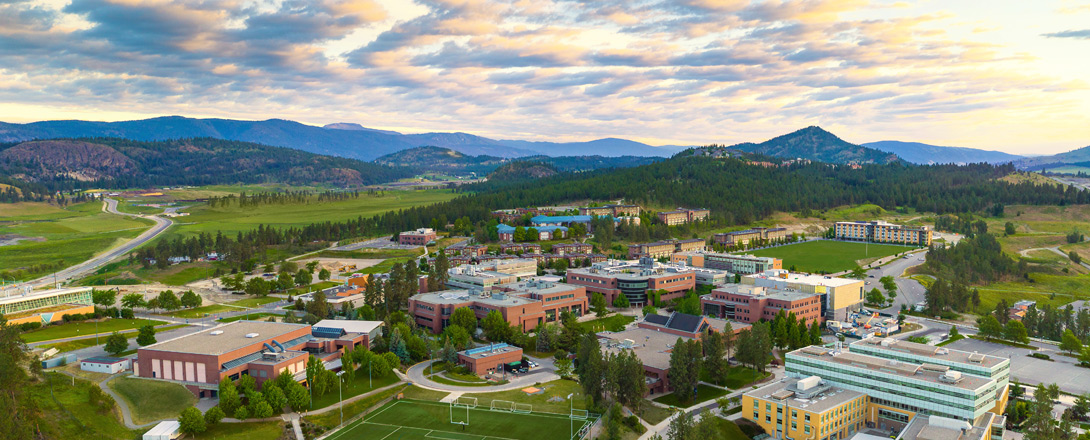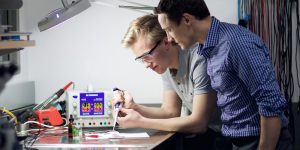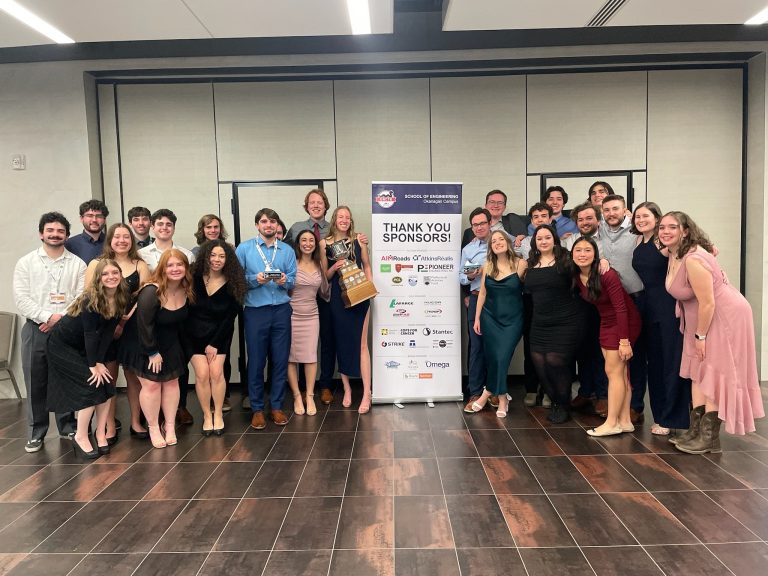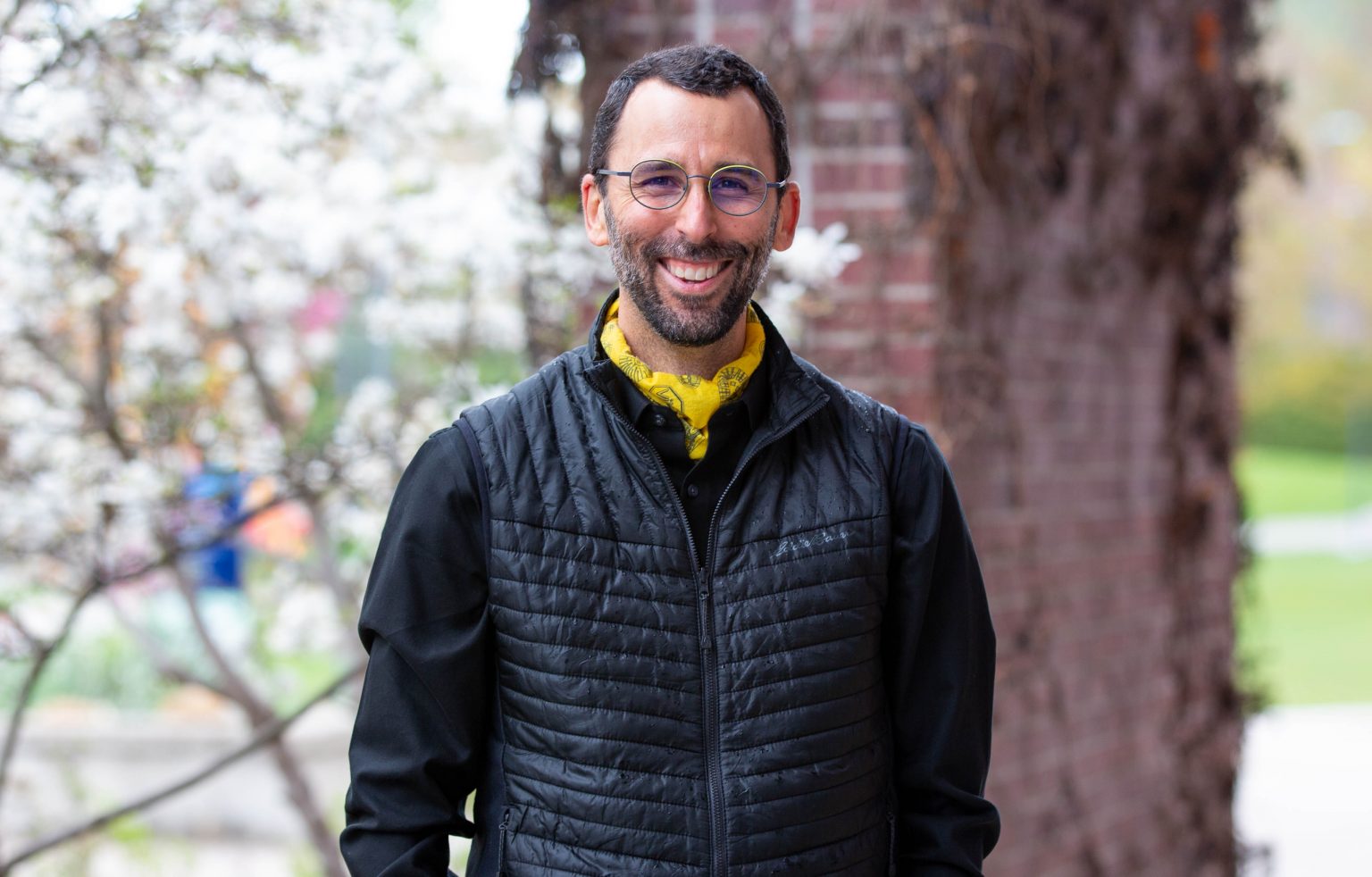
Dr. Will Hughes, Director of the School of Engineering, is the new Canada Research Chair in DNA Engineering (Tier 1).
Dr. Will Hughes is one of two UBCO faculty members to receive prestigious Canada Research Chair appointments
The following story re-shares information from an announcement by UBC Okanagan’s Office of the Vice-Principal, Research & Innovation on March 13, 2024.
The Honourable Pablo Rodriguez, Minister of Transport, announced the new chairs today on behalf of the Honourable François-Philippe Champagne, Minister of Innovation, Science and Industry, as part of a larger funding announcement for Canadian researchers and projects.
Dr. Alanaise Ferguson from the Irving K. Barber Faculty of Arts and Social Sciences is the new Canada Research Chair in Health, Healing and Community Revitalization: Indigenous Approaches to Overcoming Intergenerational Trauma and Loss (Tier 2), while Dr. Will Hughes from the School of Engineering is the Canada Research Chair in DNA Engineering (Tier 1).
Both faculty members also received Canada Foundation for Innovation funding through the John R. Evans Leaders Fund for their research infrastructure, for a combined total of more than $440,000.
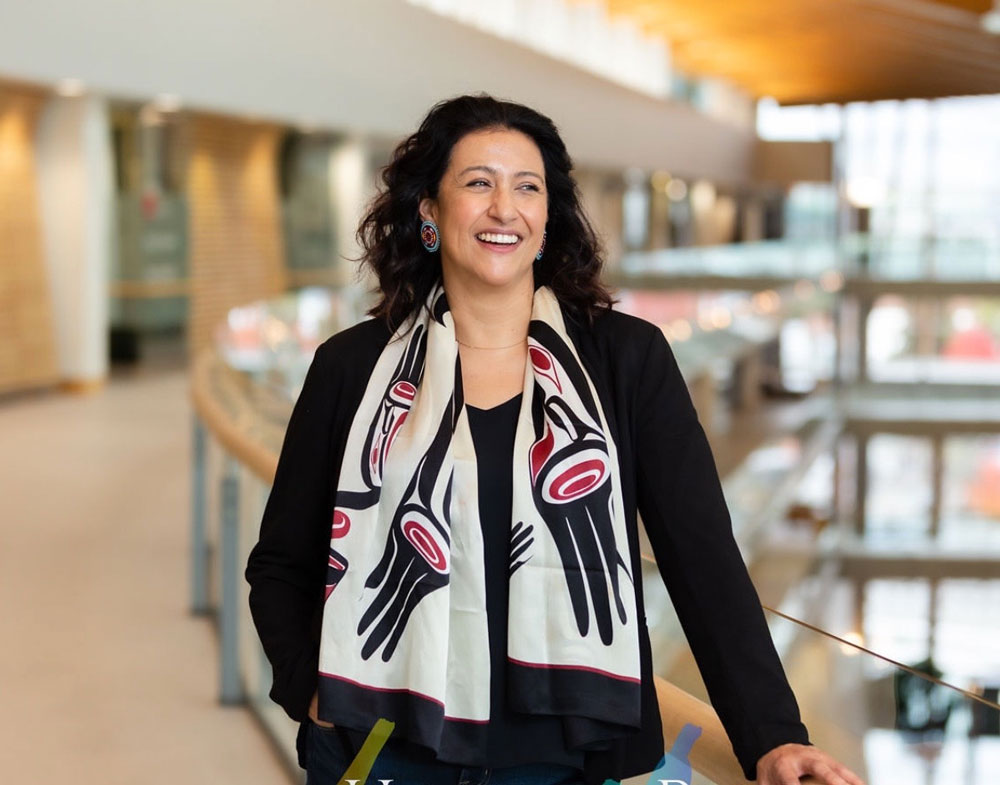
Dr. Alanaise Ferguson, Associate Professor, Indigenous Studies is the new Canada Research Chair in Health, Healing and Community Revitalization: Indigenous Approaches to Overcoming Intergenerational Trauma and Loss (Tier 2).
OVERCOMING INTERGENERATIONAL TRAUMA AND LOSS
An Associate Professor in Indigenous Studies, Dr. Ferguson focuses on developing Indigenous approaches to overcoming intergenerational trauma and loss. As a registered psychologist, and the daughter and granddaughter of residential school survivors, she incorporates therapeutic models in her work and engages with diverse Indigenous ways of healing.
“Indigenous approaches to health and wellbeing are really expansive and include techniques and processes we might not necessarily recognize,” said Dr. Ferguson. “One of these techniques is cultural reclamation, such as language reclamation or the resurgence of Indigenous stories—basically the things we lost when we were enduring different policies of genocide, especially in the last century.”
With a group of Canadian scholars, Dr. Ferguson is developing a healing plan that can be easily adapted across Canada in various environments and communities.
Though Indigenous people experience similar levels of mental health issues as non-Indigenous Canadians, their rates of post-traumatic stress disorder and chronic stress are disproportionately higher, says Dr. Ferguson. This stress can contribute to other health disorders, including cardiovascular diseases and diabetes, and to greater involvement in the criminal justice system.
“If Indigenous people had access to culturally appropriate services, then we could really remediate that disparity,” says Dr. Ferguson.
DNA ENGINEERING
Dr. Hughes, who in addition to serving as the Director for the School of Engineering is also a Professor in Applied Science, designs DNA for multiple uses, including storing and reading digital data.
The increasing popularity of cloud computing is creating a two-fold storage crisis. First, the world is projected to run out of semiconductor-grade silicon—necessary for manufacturing the flash memory used in cloud storage applications—by 2040. Secondly, storing the huge amount of data already created in memory requires a massive amount of energy, resulting in high environmental and financial costs.
To help solve this problem, Dr. Hughes believes storing data in synthetic DNA is a viable alternative. Nucleic acid memory (NAM), as coined by his team, is stable, sustainable, inexpensive to operate, and can store significantly more data in a smaller package.
In contrast to large servers and data centres, with the emerging capabilities of DNA, it’s possible that the projected digital universe in 2040 could fit in a 100×100×10 cm3 box—slightly smaller than a U-Haul box to move a TV.
Dr. Hughes’s project focuses on encoding and encrypting information into DNA in multiple dimensions, but the team will also be exploring basic questions about how DNA interacts, how information flows in a system and how to take advantage of the biological and non-biological components of DNA for data storage applications. To address these questions, they’re also building the next generation of sequencing tools.
“This project is an engine for creating questions and answering questions,” says Dr. Hughes. “It’s where science and engineering and design come together in authentic ways.”
To the benefit of UBCO, Dr. Hughes combined CFI funding related to his CRC with that of another CRC in UBCO’s Irving K. Barber Faculty of Science, Dr. Isaac Li, to purchase a near video-rate atomic force microscope.
“It is a gift to work with Dr. Li, and together we were able to acquire a state-of-the-art instrument that neither one of us could have acquired independently. Partnership means everything here, and this new CRC-funded equipment will support UBC Okanagan’s growing research success for years to come.”
The federal government established the Canada Research Chairs program in 2000 to promote excellence and innovation in Canadian research centres. Chairholders are some of the world’s most accomplished and promising minds, improving our depth of knowledge and quality of life, strengthening Canada’s international competitiveness and helping train the next generation of researchers. UBC Okanagan now has nine Canada Research Chairs.
With the announcement, UBCO researchers received more than $4.1 million in funding for 26 UBCO-led projects, including the two CRC-associated JELF awards, 10 SSHRC Insight Development Grants and 14 NSERC Alliance Grants.
SSHRC INSIGHT DEVELOPMENT GRANTS
UBCO researchers received more than $630,000 in funding from SSHRC Insight Development Grants, over 10 successful projects.
Adebayo, Sakiru (English and Cultural Studies)
The Melancholic Diaspora: Postcolonial African Immigrant Subjects in the United States
Obeegadoo, Nikhita Sonia Richa (Languages and World Literatures)
From coelacanths to mangroves: A multilingual, multispecies and decolonial approach to global archipelagic literature
Ronquillo, Charlene (Nursing)
Stakeholder perspectives and impacts of explainable artificial intelligence: A case study in a British Columbia health authority
Saifer, Adam (Faculty of Management)
Connecting the dots: Investigating institutional philanthropy’s entanglement with right-wing populism in Canada
Wong, Wendy (Economics, Philosophy and Political Science)
Increasing Accessibility in Surveys
Mohamadpour Tosarkani, Babak (School of Engineering)
A novel decision-support approach for exploring and analyzing factors affecting Canadian food industry performance
Neimanis, Astrida (Community, Culture and Global Studies)
Enhancing Access and Inclusion in Environmental Humanities Research Practice
Chau, Shirley (Social Work)
Anti-racism task forces and reports at universities in Canada: What happens to them after the launch party? A Critical Race Theory application of institutional response to calls for action…
Paulson, Timothy (History and Sociology)
Canola Capitalism: Futures Markets and Genetically-Modified Rapeseed on the Canadian Prairie, 1963-2007.
Yoon, Kyong (English and Cultural Studies)
Asian Canadian YouTubescape: Youth Cultural Politics of Visibility
NSERC ALLIANCE GRANTS
UBCO researchers had 14 successful applications during 2022/23, totalling over $3 million in NSERC funding.
Sina Kheirkhah (School of Engineering)
Development of hydrogen safety codes and standards through a collaboration between UBC and the University of Groningen: Design of reacting flow facilities
Suliman Gargoum (School of Engineering)
Automated Low-Cost Change Detection of Road Infrastructure Assets Using Remote Sensing and AI
Zheng Liu (School of Engineering)
Multi-Modal ILI Data Fusion for Combined Diagnostics of Pipeline
Sumi Siddiqua (School of Engineering)
Bio-mediated treatment of organic soil with fungal strain Penicillium Chrysogenum and wood fly ash
Ifeoma Adaji (Computer Science, Mathematics, Physics and Statistic)
A Systematic Review of Behaviour Change Technologies for Influencing Healthy Nutrition
Jian Liu (School of Engineering)
High-performance quasi-solid-state zinc-ion capacitors coupling carbonaceous electrodes with eutectic hydrogel electrolytes
Solomon Tesfamariam (School of Engineering)*
Performance-Based Design of Tall Mass Timber Buildings Under Earthquake and Fire Loads
*has since moved to another institution
Rehan Sadiq (School of Engineering)
Enhancing Sustainability Performance in Aquatic Centres: A Life Cycle Approach
Thu Thuy Dang (Chemistry)
Single-cell omics approaches for anticancer camptothecin biosynthetic pathway elucidation
Ahmad Al-Dabbagh (School of Engineering)
Toward resilient operation of large-scale systems
Nathaniel Pelletier (Biology)
Collaborative roadmap development towards a net zero greenhouse gas emissions Canadian egg industry
Kenneth Chau (School of Engineering)
UV LED Light Controlling Elements for Photoreactor Applications
Shahria Alam (School of Engineering)
Crack detection and prediction of RC piers during earthquakes using machine learning and artificial intelligence
Kyle Larson (Earth, Environmental and Geographic Sciences)
Tectonics, deformation, fluid flow, and gold metallogeny during Cretaceous inversion of the Selwyn basin
Congratulations to all of the researchers!
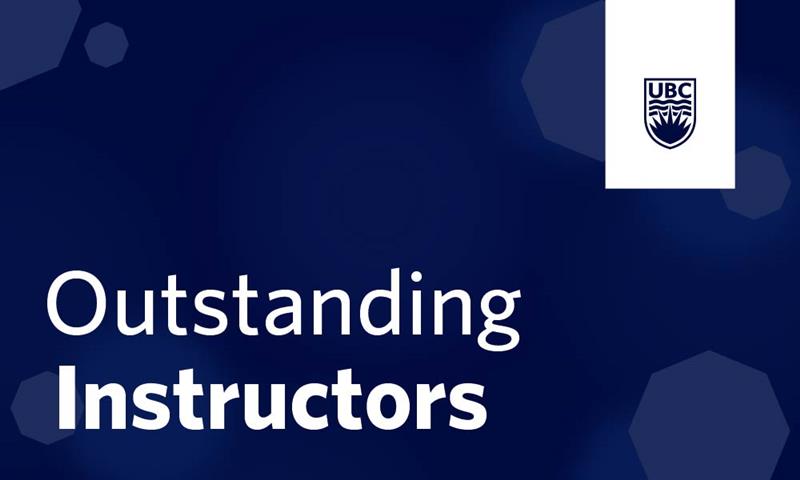

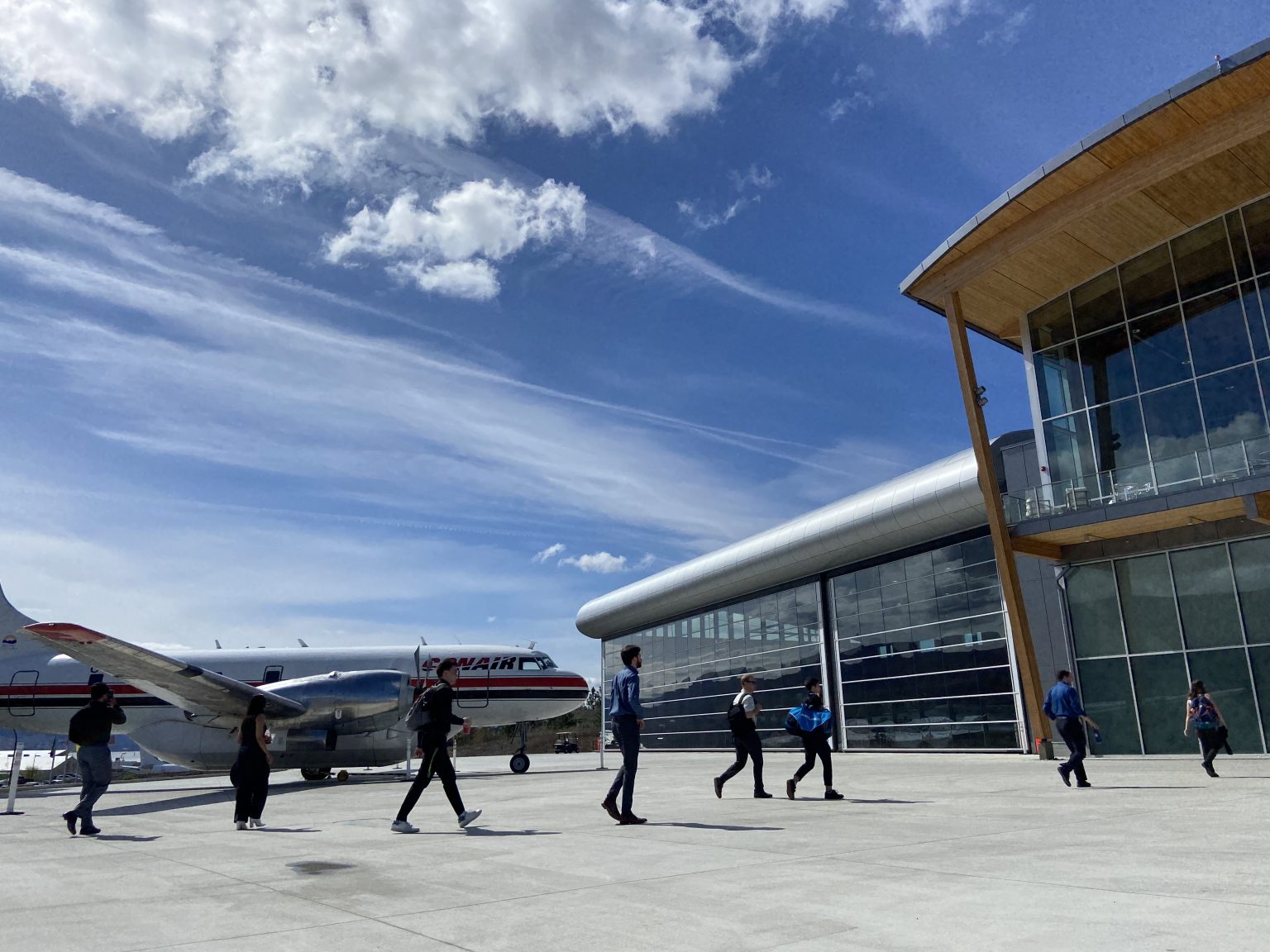
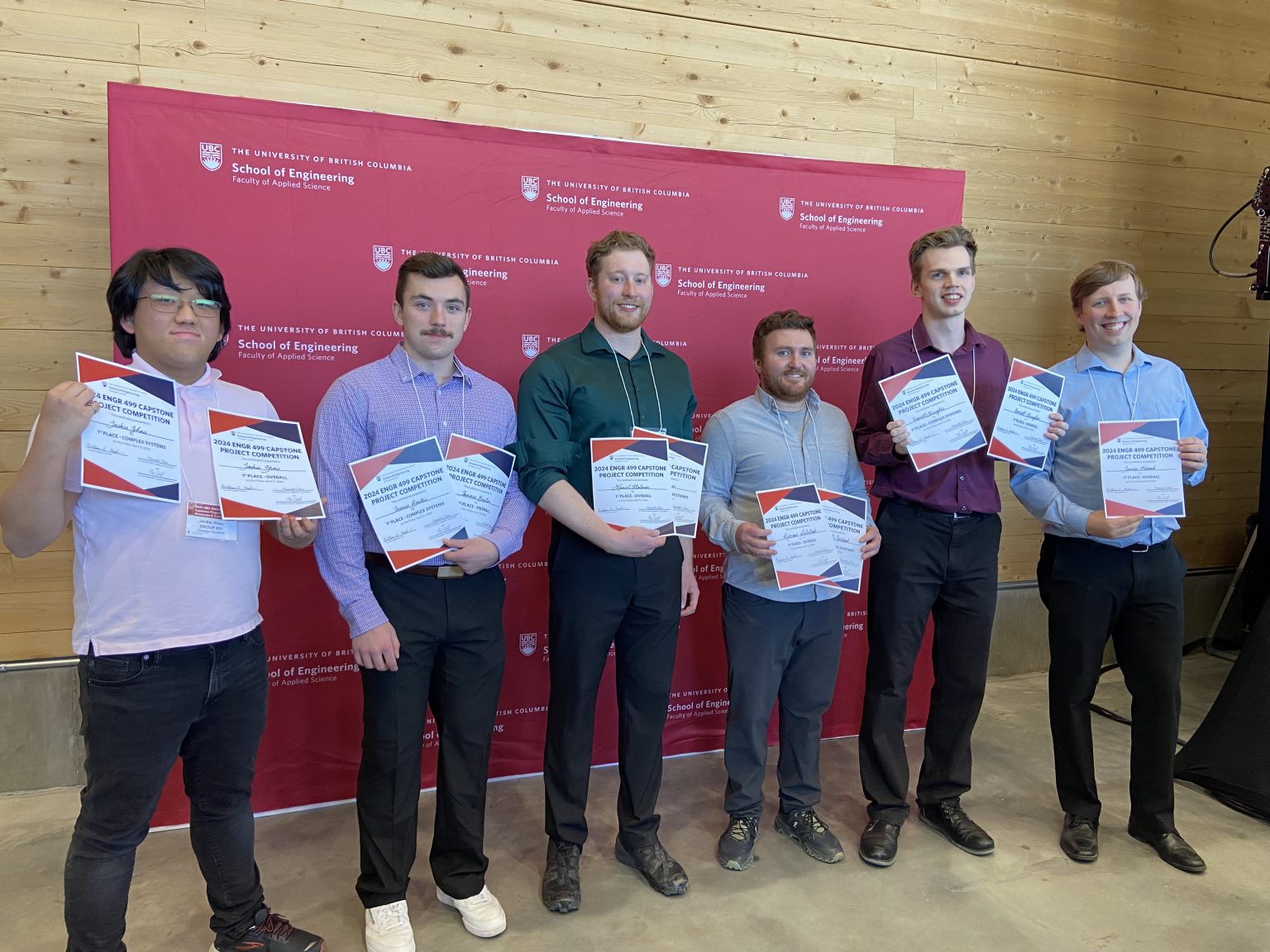
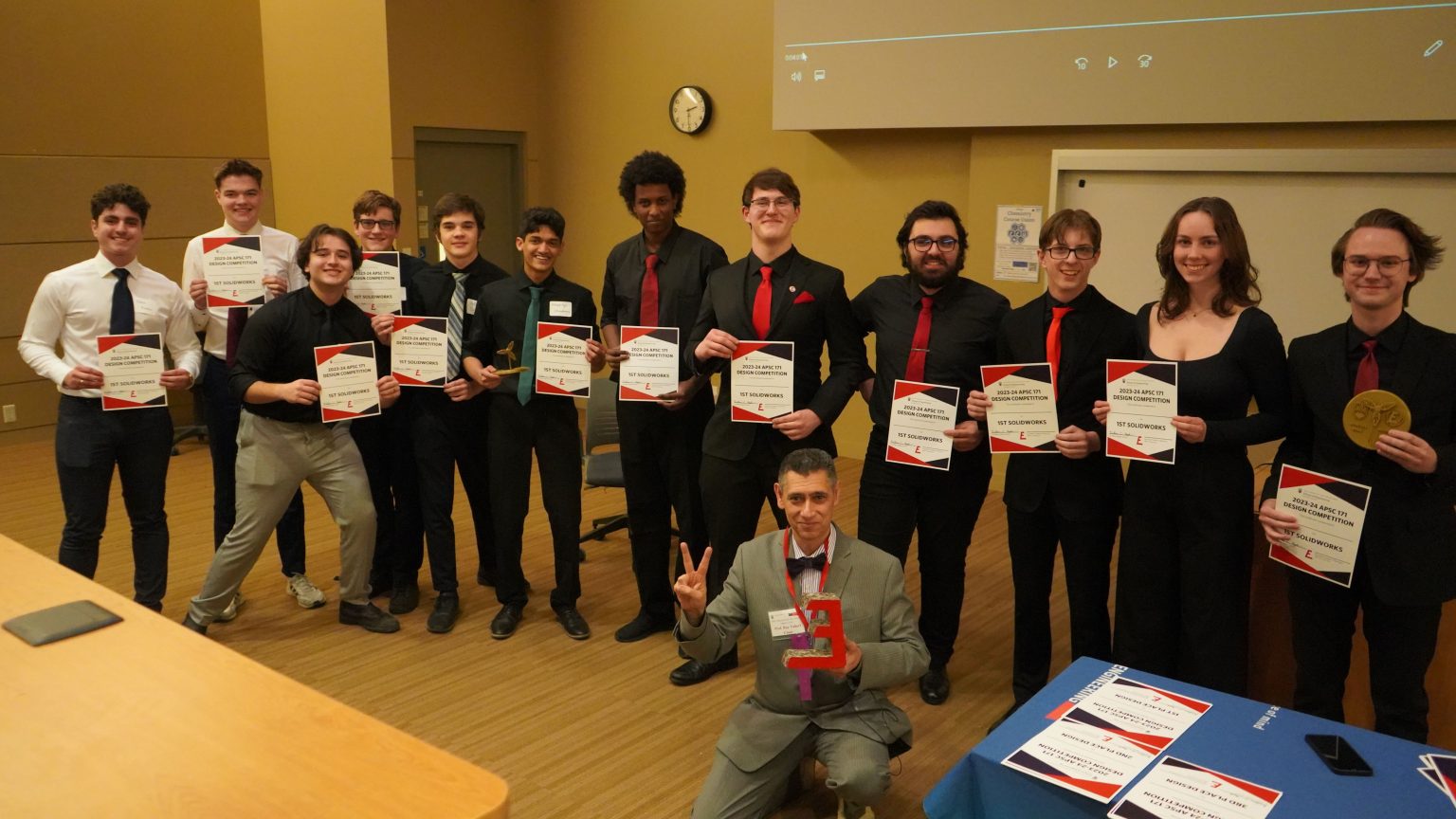
 SOE students collaborate and innovate on their way to second place showing at Canadian Engineering Competition
SOE students collaborate and innovate on their way to second place showing at Canadian Engineering Competition 